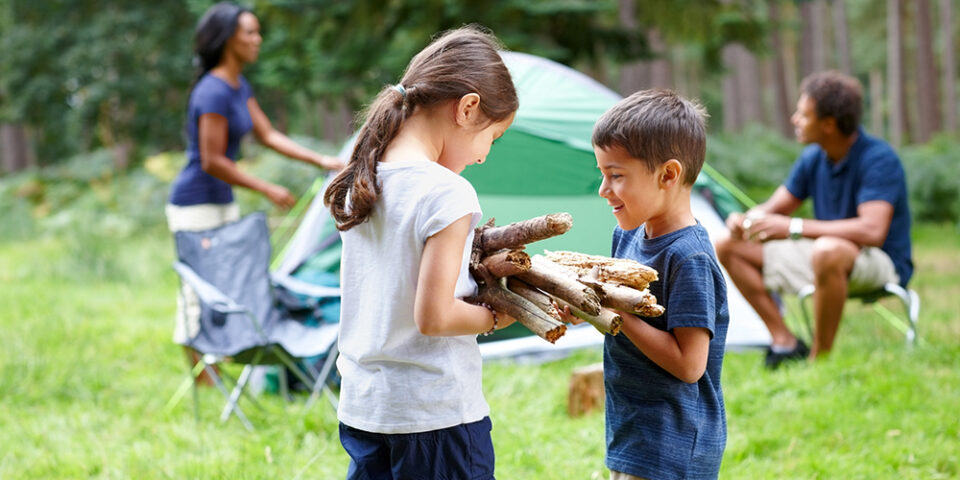7 tips for staying safe while camping
July 20, 2023
Ahh, the great outdoors. Sleeping under the stars and eating hotdogs cooked over a campfire can be super fun, but it’s good to be prepared so you don’t have any camping mishaps. Emergency medicine expert Spencer Robinson, DO, offered a few tips for staying safe while camping.
- Let someone know where you are. “If you’re hiking, take a photo of exactly where you are when you’re starting out on a trail, including a labeled trail sign if at all possible, and send it to someone so they know how to find you,” Dr. Robinson said. “I do a lot of work in the pre-hospital field and throughout the year it’s common for someone to get lost because their cellphone stopped working or they didn’t have service. So, it’s vitally important to let a family member know exactly where you are.”
- Leaves of three? Let it be! Know what poison ivy, poison oak and poison sumac look like so you can avoid it. Wearing long-sleeves and pants is helpful, but if you still come into contact with it, wash it off as quickly as you can with soap and water.
- Bring bug repellent. To protect against mosquitoes and ticks, make sure you have some sort of bug spray. If you’re bitten by a tick, remove it with tweezers and contact your physician if you develop a rash or any problems. Prevent tick bites with long sleeves, long pants and by tucking your pants into your socks or hiking boots so that there’s no bare skin in sight.
- Be safe around campfires. Burns are a significant concern that you have to look out for while you’re camping. Check the weather to make sure it’s not too windy for a campfire, then have a safety plan. Make sure it’s secured and that you’re at a safe distance from it. Don’t throw anything into the fire that isn’t appropriate and be sure to fully put the fire out before you go to sleep. Also, be sure before heading out that there isn’t a “red flag warning” for exceptional fire risk for the area you’ll be camping in. You can check for red flag warnings issued by the U.S. government right here.
- Watch out for water. “If you don’t know how to swim and you’re camping near a lake or a river, you have got to be aware of your surroundings,” Dr. Robinson said. “If you get up in the middle of the night to use the restroom, you don’t want to potentially slip in some sort of body of water and not be able to get out.”
- Know the risk of animals and reptiles. Watching out for snakes is always a good idea (take a peek inside that sleeping bag before you get in it!). Also be sure to store your food properly so you don’t have an unwanted visitor in the middle of the night. If you’re camping somewhere that has larger animals like bears, bring along some bear spray or a bear whistle. The USDA has tips on bear-proofing your campsite right here.
- Sleep safely. If you’re using a gas or kerosene space heater or a generator to camp in comfort, make sure you’re not sleeping close to it and exposing yourself to carbon monoxide. Space heaters should be properly installed and ventilated if they are located within tents, and generators should be placed a safe distance away from the doors, windows or air intakes in your camper, as well as away from your tent.
For other tips on being safe in the outdoors, check out this podcast.
Find a doctor
Whether you’re looking for a primary care physician or need to see a specialist, we’re here to help with experienced, compassionate care near you.
Find a Doctor

